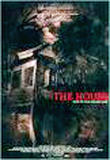| OTHER RELEASES | |
| Klimt John Malkovich plays yet another talented but troubled character, this time Austrian artist Gustav Klimt (1862-1918). Klimt is famous for nude portraits and a lifestyle that defied social norms; both feature in this loose biopic by hardworking director Raul Ruiz. Critics were largely dismissive of this effort, though more or less united in their praise for its visual beauty and honorable intentions. Alas, the version showing in Taiwan seems to be the shorter — and inferior — producer's cut that was released in the US. |  |
| The Valet Yet another Parisian romance to hit Taiwanese screens this winter, this comes from director Francis Veber, who wrote the original La Cage Aux Folles and a bunch of other films later remade in Hollywood. More comedy of errors than manners, the luckless parking attendant of the title is called on to pretend to be in a relationship with the mistress of a wealthy businessman after the latter two are caught in a reasonably compromising position. Fans of farce should enjoy this. French title: La Doublure |  |
| Kung Fu Fighter (功夫無敵) A number of actors from Kung Fu Hustle (功夫) turn up in a cheap knock-off that is also set in Shanghai in the 1930s. But Stephen Chow (周星馳) is not one of them. Vanness Wu (吳建豪) of F4/JVKV fame tries to locate his father as romance blossoms and triads close in. The trailer alone reveals a lack of Chow's visual flair and his ability to mingle the spectacular with the bizarre. Chow’s many fans instead need to wait until Jan. 31, which is when his new big-budget film CJ7 opens in Taiwan. |  |
| The House If you didn't get your fill of Thai horror flicks last year, the new year offers this entry. A reporter connects the dots in a series of grisly deaths at a haunted house, only to discover that she might be next in line. The House is getting more publicity than normal for a Thai horror opus, possibly because it performed quite well at the Thai box office. Decent production values may not appease those looking for a little more originality, however. Director Monthon Arayangkoon also made last year's The Victim, which did well here, and 2004's Garuda, about a monster in the Bangkok subway. |  |

That US assistance was a model for Taiwan’s spectacular development success was early recognized by policymakers and analysts. In a report to the US Congress for the fiscal year 1962, former President John F. Kennedy noted Taiwan’s “rapid economic growth,” was “producing a substantial net gain in living.” Kennedy had a stake in Taiwan’s achievements and the US’ official development assistance (ODA) in general: In September 1961, his entreaty to make the 1960s a “decade of development,” and an accompanying proposal for dedicated legislation to this end, had been formalized by congressional passage of the Foreign Assistance Act. Two

March 31 to April 6 On May 13, 1950, National Taiwan University Hospital otolaryngologist Su You-peng (蘇友鵬) was summoned to the director’s office. He thought someone had complained about him practicing the violin at night, but when he entered the room, he knew something was terribly wrong. He saw several burly men who appeared to be government secret agents, and three other resident doctors: internist Hsu Chiang (許強), dermatologist Hu Pao-chen (胡寶珍) and ophthalmologist Hu Hsin-lin (胡鑫麟). They were handcuffed, herded onto two jeeps and taken to the Secrecy Bureau (保密局) for questioning. Su was still in his doctor’s robes at

Last week the Democratic Progressive Party (DPP) said that the budget cuts voted for by the China-aligned parties in the legislature, are intended to force the DPP to hike electricity rates. The public would then blame it for the rate hike. It’s fairly clear that the first part of that is correct. Slashing the budget of state-run Taiwan Power Co (Taipower, 台電) is a move intended to cause discontent with the DPP when electricity rates go up. Taipower’s debt, NT$422.9 billion (US$12.78 billion), is one of the numerous permanent crises created by the nation’s construction-industrial state and the developmentalist mentality it

Experts say that the devastating earthquake in Myanmar on Friday was likely the strongest to hit the country in decades, with disaster modeling suggesting thousands could be dead. Automatic assessments from the US Geological Survey (USGS) said the shallow 7.7-magnitude quake northwest of the central Myanmar city of Sagaing triggered a red alert for shaking-related fatalities and economic losses. “High casualties and extensive damage are probable and the disaster is likely widespread,” it said, locating the epicentre near the central Myanmar city of Mandalay, home to more than a million people. Myanmar’s ruling junta said on Saturday morning that the number killed had